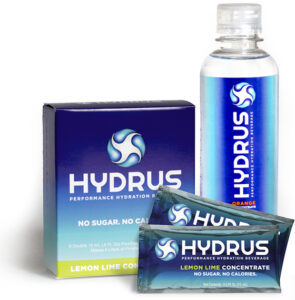Do you experience symptoms such as sneezing, wheezing, dry eyes (redness & irritation), dry throat, dry mouth, dry nose throughout the year? Well, indoor allergens may be setting off your allergies- and dehydration could be adding to the problem.
Allergies are the 6th leading cause of chronic illness in the U.S. More than 50 million Americans experience various types of allergies each year, according to the Center for Disease Control (CDC).
In winter months, the air we breathe indoors becomes considerably drier, causing your exposure to indoor allergens to increase. Your furnace circulates airborne dust, which can contain toxic fibers, bacteria and viruses, food and animal dander.
So whether you are at the office or working from home, your exposure to allergens can worsen during the winter months. While allergy symptoms caused by harmful irritants like mold, dust, and pollen are annoying enough, dehydration only worsens matters. Here’s why.
Allergies, Hydration & Immunity
The first thing you should know about dehydration and allergies is that dehydration suppresses the immune system making you more susceptible to viruses and bacterias. Keeping your body well-hydrated during winter can provide fast relief to allergy symptoms by delivering extra fluids to mucosal membranes in your nasal passages and encouraging sinus drainage. When your mouth, nose and throat are well hydrated, it’s harder for harmful bacteria or allergens to enter your respiratory system.
Histamines Can Cause Dehydration
Allergic reactions or allergies occur because your immune system mistakenly identifies a relatively harmless substance (specific foods, pollen, pet dander) as a “pathogen.” Your immune system naturally releases “histamines,” which set off a series of chemical reactions to help block allergens and bacteria entering your body through your nose, mouth and skin. When histamines are released, your body boosts blood flow to the area that is affected by the allergen. As a result, your mucosal membranes or the wet layer inside your nose, throat, and the other regions become wetter and push out the harmful invaders.
For example, when pollen enters your nose, histamines will cause the inside of your nose to make more mucus causing you to get a runny or stuffy nose. This will result in sneezing, which pushes out the allergens or bacteria and preventing them from getting inside and harming your respiratory system.
It’s for this reason that histamines play a critical role in regulating your body’s water supply. When your body is dehydrated, histamine production acts as a defensive mechanism to preserve the body’s water. When too many of these histamines circulate in our body, your body becomes even more sensitive to harmless compounds with allergic reactions. Staying well hydrated reduces the amount of histamines present inside your body and ultimately helps tame your allergy symptoms.
The second problem is that allergy medications or antihistamines like Benadryl are designed to prevent histamine release and block these crucial reactions from taking place and make you dehydrated. When this occurs, the outer mucosal membranes aren’t going to get as wet or undergo a series of responses that push out the bacteria and viruses. Unfortunately, antihistamines leave your body dehydrated and unprotected when there’s a real threat from bacteria and viruses. If you take antihistamines regularly, you need to monitor your hydration, especially in the winter months, when your body needs to build immunity and fight infections.
You Need A Proper Balance of Electrolytes & Water
It’s common to feel less thirsty in the winter months because we generally sweat less in colder weather. One of the reasons you feel less thirsty is that your body’s visual signals you need to rehydrate aren’t as obvious. Staying well hydrated enables your body to react better to pesky allergens and lowers histamines’ level in your body. Drinking water alone isn’t the most effective weapon against dehydration. Proper hydration is not about how much water you drink; it’s about how much water your body absorb
Electrolytes, sodium and potassium play essential roles in absorption and balancing water levels in your blood, urine, tissues, and other body fluids.They perform critical roles by helping your cells absorb nutrients and eliminate waste. The primary function of electrolytes is to balance the amount of water available in your body’s cells, and they are contained in fluids throughout the body. They are chemicals that get their name because when they dissolve in water and produce charged ions. These ions enable the flow of electrical signals through the body.
When your body becomes depleted of essential electrolytes, your cells and organs are unable to function correctly. That’s why drinking water alone isn’t the only weapon against fighting symptoms of dehydration. Your body often needs a balance of both water and electrolytes throughout the day to be “properly hydrated.”
Daily Hydration With Hydrus Is The Solution
Hydrus is formulated to deliver the electrolytes your body needs more effectively than drinking water alone. Unlike other hydration products, Hydrus contains Nanosomes™ or tiny nano-scale hollow sphere-shaped molecules made of phospholipids that encapsulate electrolytes and water.
Studies show that Hydrus’s science delivers about 50% greater water and electrolyte absorption than traditional sugar-electrolyte and hydration drinks. Adopting a proper hydration routine may help you feel better and tame your allergies.
Get the Hydrus Edge Now and Feel the Difference!
